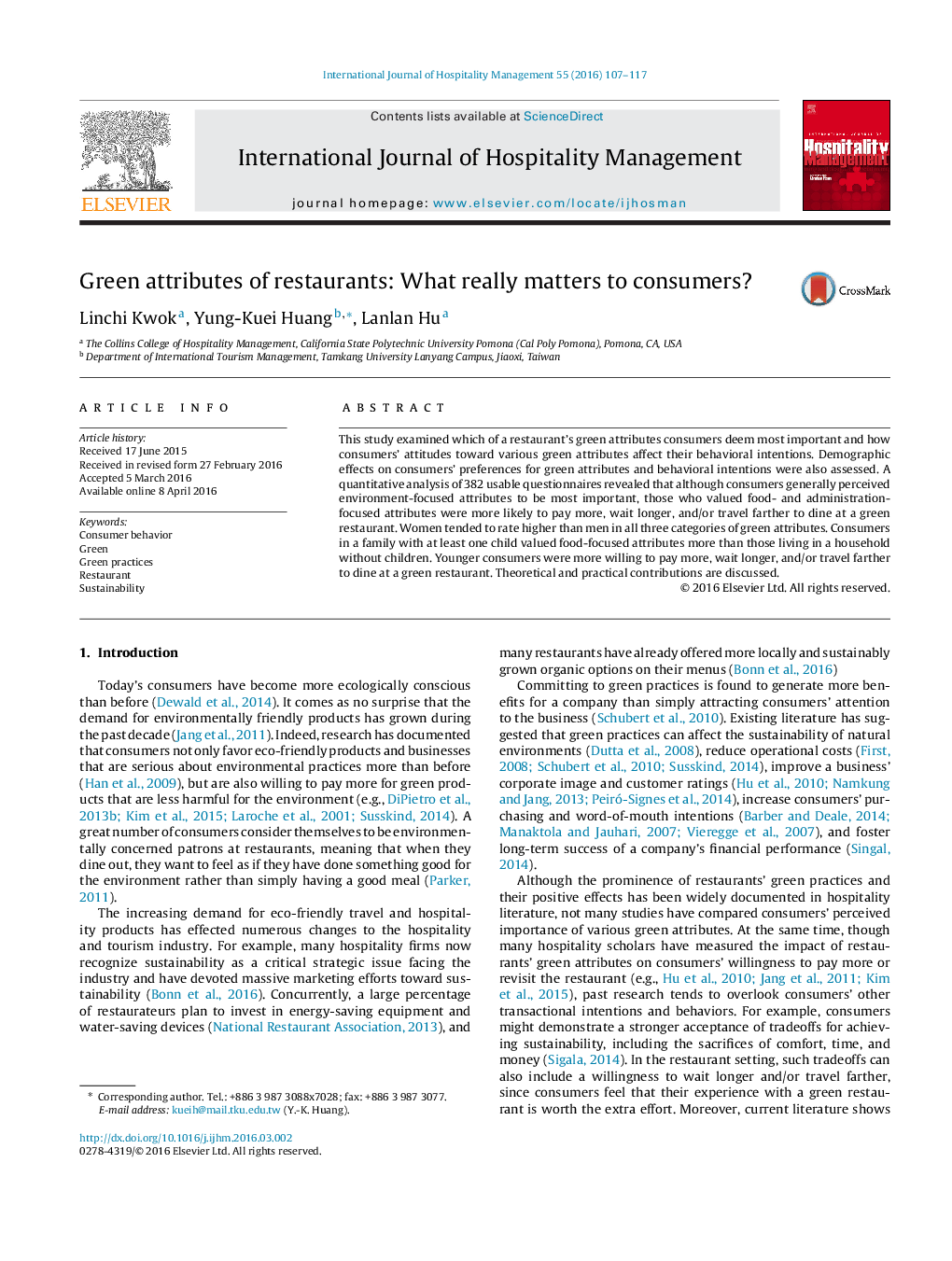| Article ID | Journal | Published Year | Pages | File Type |
|---|---|---|---|---|
| 7419184 | International Journal of Hospitality Management | 2016 | 11 Pages |
Abstract
This study examined which of a restaurant's green attributes consumers deem most important and how consumers' attitudes toward various green attributes affect their behavioral intentions. Demographic effects on consumers' preferences for green attributes and behavioral intentions were also assessed. A quantitative analysis of 382 usable questionnaires revealed that although consumers generally perceived environment-focused attributes to be most important, those who valued food- and administration-focused attributes were more likely to pay more, wait longer, and/or travel farther to dine at a green restaurant. Women tended to rate higher than men in all three categories of green attributes. Consumers in a family with at least one child valued food-focused attributes more than those living in a household without children. Younger consumers were more willing to pay more, wait longer, and/or travel farther to dine at a green restaurant. Theoretical and practical contributions are discussed.
Related Topics
Social Sciences and Humanities
Business, Management and Accounting
Strategy and Management
Authors
Linchi Kwok, Yung-Kuei Huang, Lanlan Hu,
